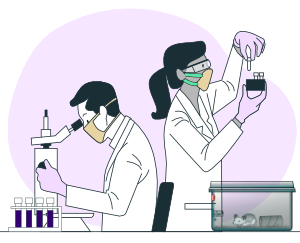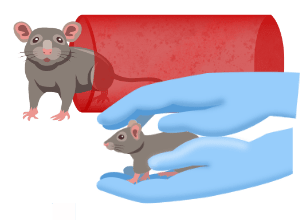 |
Contingency Planning: What to do if you can’t provide care for your animalsSignificant events such as a snowstorm, flood, earthquake, or fire may cause the UW to suspend operations, make it impossible for you to come work, or force you to evacuate without advance notice. To ensure continued animal care, labs must have a written contingency plan posted in areas where animals may be present. All members of the lab must be trained on the plan and know how to respond correctly in an emergency. For USDA-regulated species, there are specific USDA requirements related to contingency plans. For animals housed within DCM vivaria, DCM staff will ensure continued care. For animals housed within WaNPRC, WaNPRC will ensure continued care for animals, but investigators who normally feed their own animals should review the WaNPRC SOP “Emergency Procedures for Animals Fed or Watered by Investigators. For animals housed outside of DCM vivaria, you must call DCM’s answering service (contact oawrss@uw.edu for the number), and let the operator know that animals are present in your IACUC-approved lab-managed housing space and whether a lab member is able to care for them. Please note, this is a 3rd party answering service. You will not be speaking with a DCM employee. If you must evacuate while you have animals in a procedure space outside of a vivarium, have a plan in place for what to do. Animals left in procedure spaces due to an emergency should be secured within cages and have access to food and water. Labs should be prepared at all times to quickly meet these conditions or to euthanize animals prior to evacuation, if it is possible to do so without risking human safety. |
 |
New HoverBoard NotificationWe recently implemented a new notification reminder for the “Clarification Requested” Activity in Hoverboard. This reminder will show up in the history of your submission as “Response Time Exceeded” and will be sent out via email from Hoverboard after a submission has been in the “Clarification Requested” state for more than 14 days. This reminder will be sent on a cadence of every 14 days until action is taken. The body of the notification will state: Reminder: This protocol item is awaiting your response to clarifications requested by the IACUC staff or reviewers. Please click on the above link to access the protocol item. If a protocol item has not been actioned within 30 days of clarifications being requested, OAW will administratively withdraw the item. Please notify your liaison or OAW staff (oawrss@uw.edu) if additional time is needed, or if you do not intend to continue the IACUC review process for this protocol item. Note: Please do not withdraw a submission without first contacting OAW. |
 |
Training & Documentation in the LabAll staff must be properly trained prior to working with animals. Initial training is provided by CLATR but additional training may also occur within the lab. PIs are responsible for ensuring all staff are properly trained for all techniques performed. Training must be documented and training records must be available for review upon request. Reach out to OAW (oawrss@uw.edu) or CLATR (clatr@uw.edu) if you have questions about training requirements or if you would like assistance with documentation practices. |
 |
Refined Handling of Mice and RatsDo you want to reduce the stress the animals experience? Refined rodent handling methods, such as tunnel-handling and cupping, may be less stressful and could reduce research variables for your study. It can also be more efficient for cage transfers and other procedures. Learn more about Refined Mouse Handling from CLATR or the 3R’s Collaborative. Contact CLATR to request customized training on these techniques! |
 |
Recently Revised IACUC PoliciesAt its February meeting, the IACUC reviewed and approved revisions to two IACUC Policies. Rodent Survival Surgery Procedures – This policy was extensively revised in November 2023, and updated by the IACUC in February 2024 to clarify expectations surrounding the use of heating pads. Review this policy if your IACUC protocol involves survival surgery in rodents. Euthanasia of Research and Teaching Animals – This policy was updated to strengthen language regarding requirements for confirmation of death and secondary methods, add options for remote certification for field work, clarify exposure time for immersion euthanasia for finfish, and reorganize content for readability. Review this policy if your IACUC protocol involves euthanasia. |